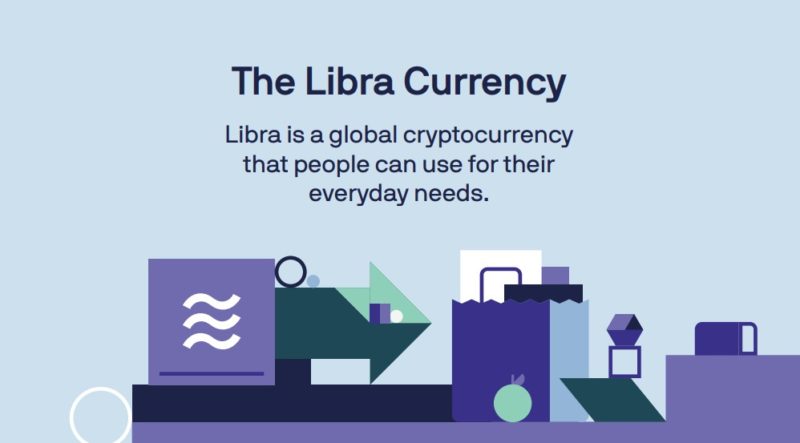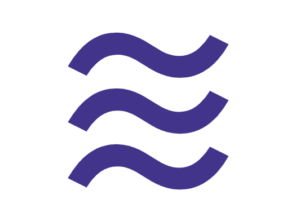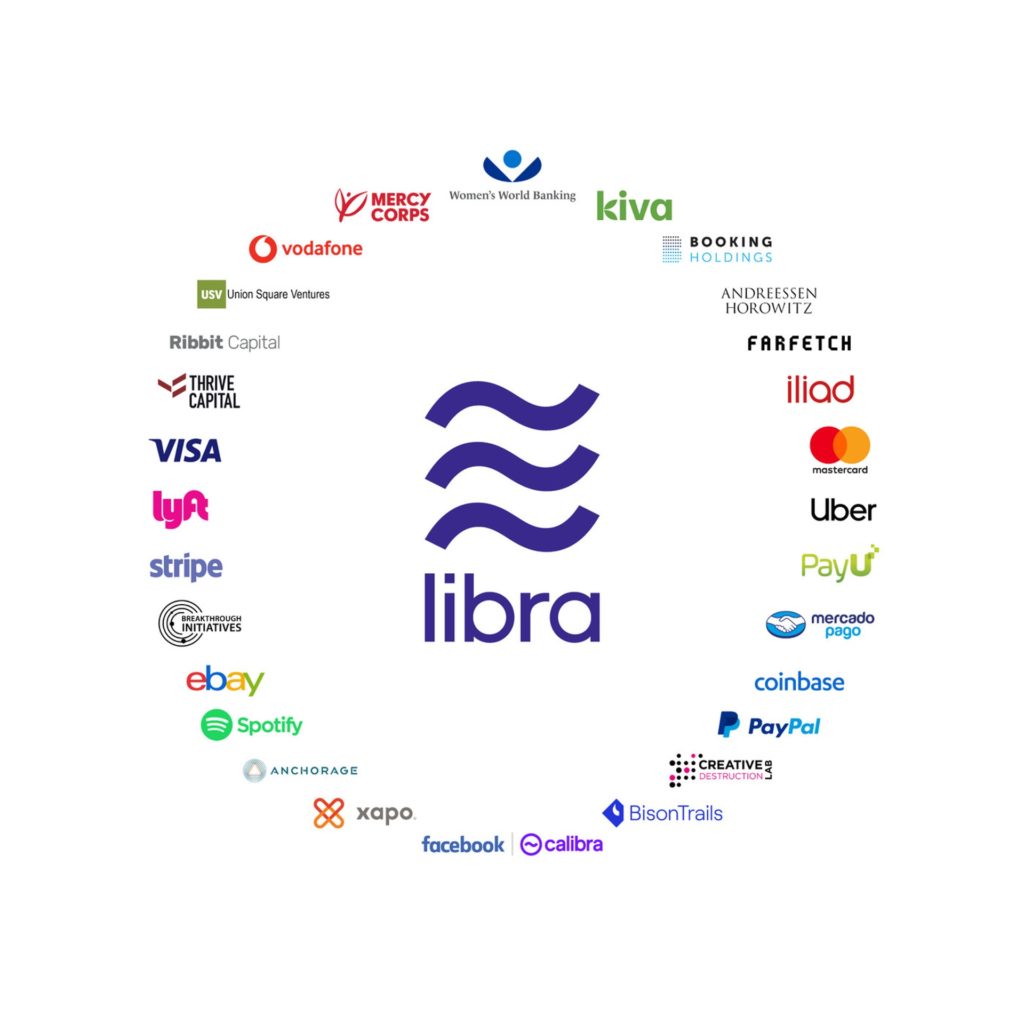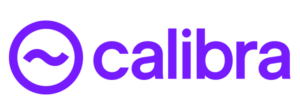
With over 2.5 billion combined users across WhatsApp and Facebook, the social media giant is venturing into cryptocurrency as its next big project. Targeting 1.7 billion people around the globe who don’t have a bank account yet, Facebook Libra aims to offer them an easy way to handle their finances digitally.
The Coin

The exact value of the coin is still under wraps, but it is meant to be close to the value of a pound, euro or dollar so the global value is easier to conceptualise. The Libra is represented by a three wavy horizontal line unicode character ≋ like the dollar is represented by $. The cryptocurrency’s value is tied to bank deposits and short-term government securities for several stable international currencies ranging from the dollar to the yen. The Libra Association maintains these assets and can change the balance of the composition if necessary, to offset major price fluctuations in any one foreign currency so that the value of a Libra stays consistent.
Why ‘Libra’?
The name ‘Libra’ comes from the basic Roman measurement of weight. The abbreviation lb for pound is derived from Libra, and the £ symbol originally comes from an ornate L in Libra. The name is also a play on the French stem ‘Lib’ which means ‘free’ offering a sense of financial freedom to its users.
The Libra Association

The Libra Association is a Swiss-based non-profit that will launch the cryptocurrency in 2020. The venture is currently funded by 28 backers, the likes of tech giants such as Vodafone, Uber, Spotify, PayPal, eBay, and venture capital firms such as Andreessen Horowitz, Thrive Capital, Visa and Mastercard among others. Each of the founding members has made a minimum $10 million contribution to back the project so far. Facebook hopes for a coalition of a hundred or so founding members to be a part of the Libra Association before the coin officially rolls out.
According to the white paper released on Tuesday, Facebook won’t fully control Libra, it will get one vote like the other founding members on decisions. Until the coin officially launches next year, Facebook “is expected to maintain a leadership role through 2019”, in effect remaining in control until 2020. All members of the association will promote the open-sourced Libra Blockchain and developer platform with its own Move programming language, plus sign up businesses to accept the cryptocurrency for payment and even offer customers discounts or rewards.
The Digital Wallet: Calibra

Those who want to get into trading and spending Libra will have to download Calibra Wallet, which Facebook says is offered to “almost anybody” with a smartphone across the globe. The digital wallet will be available to use via it’s messaging apps WhatsApp and Messenger, while also being offered as a separate app.
The digital wallet will be owned by a subsidiary company of the same name, in a bid to assure customer data privacy. According to the company, “Calibra customers’ account information and financial data will not be used to improve ad targeting on the Facebook Inc. family of products.”
Facebook and the other members of the Libra Association will still earn interest on the money users cash in, and this will be held in reserve to keep the value of Libra stable.
The New Bitcoin
Libra is headed by former PayPal president and Coinbase board member, David Marcus, who has been working on the project for over a year. While cryptocurrencies such as Bitcoin and Ethereum have made their mark on the market, they have failed to penetrate the everyday life of the common man due to their unanchored value. Offering their new coin to merchants and vendors all over the globe, Facebook hopes to bridge the gap and offer customers a new way to pay for their purchases. With international money transfers that are “almost free,” the venture is capitalizing on the global market and offers anyone with access to a smartphone and the internet the ability to pay with their new coin.
Facebook Libra is expected to be an evolution of PayPal, hoping that it will be easier to set up and will be more universally accepted as a payment method since it offers lower fees and a global reach. Libra is supposed to be exceptionally easy to use; cash in local currency for Libra, which you can then spend as you would any other currency across the world, except this time there are no extra foreign transaction fees and users can also choose to not have their name attached to.
Every Libra payment is permanently written into the Libra Blockchain — a cryptographically authenticated database that acts as a public online ledger designed to handle 1,000 transactions per second. In comparison, the Bitcoin blockchain handles 7, while Ethereum handles 15 transactions per second.
To kick off the coin, the Libra Association plans to issue financial incentives, possibly Libra coins, to validator node operators who can get people signed up for and using Libra. Wallets that pull users through the Know Your Customer anti-fraud and money laundering processes or those that keep users sufficiently active for over a year will be rewarded. For each transaction they process, merchants will also receive a percentage of the transaction back. Users can sign up on a waitlist for early access, but transactions will officially begin next year, once the coin successfully launches.
The Penser Perspective
Ever since Facebook hinted that it was venturing into cryptocurrency, there have been several predictions about whether it would succeed. Their extremely large user base across the world makes it seem like Facebook (and all of its prolific partners in the Libra Association) is more than likely to succeed at first, even if Libra might not catch on the way Facebook expects it to.
Libra’s extensive blockchain tech is open-source, which means external developers can add to it. After their target launch, slated for the first half of 2020, Facebook relinquishes full control and becomes a partner – which means all founding members will race to offer their customers and merchants incentives to get the project running. In terms of reinventing how cryptocurrency weaves itself into everyday life, Libra might not become the main way people choose to pay for quite a while. The Libra has the advantage of institutional legitimacy, but it is unlikely to completely disrupt the current payments value chain. There’s an established system involving a host of methods from cheques to cards to contactless to mobile wallets that witnesses constant innovation and evolution. But no single payment system has yet managed to obliterate other forms of payments, in that sense, Libra has the opportunity to be for digital payments, what Google is for the internet.
It might not be the smooth sailing that Facebook is hoping for – a few hours after the white paper was released, Democratic Rep. Maxine Waters, chair of the House Financial Services Committee requested that Facebook pause on the Libra development. Given the company’s past history with misusing user data for ad-targeting, it is understandable that everyone wants to make sure their data is safe – especially now that their money might be on the line. The wavering trust in Facebook’s data privacy mandates, coupled with the fact that many people believe that the tech company already holds too much power might create several obstacles to the path of success. Given that the Libra problem statement places importance on financial freedom and connectivity, the nature of the cryptocurrency can be construed as a new form of handling finances without the interference Wall Street or central banks.
Penser will continue to track Libra’s development and how it affects the digital payments sector, so check back in for further updates.
We’re experts in the field of digital payments and fintech, and offer digital transformation, due diligence and strategic planning services across those sectors.
